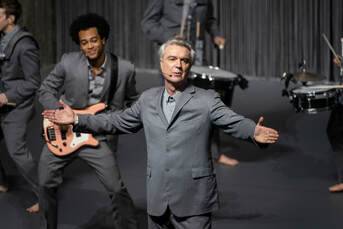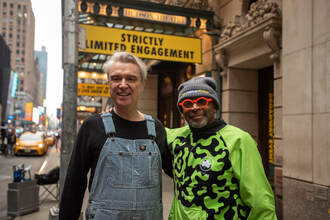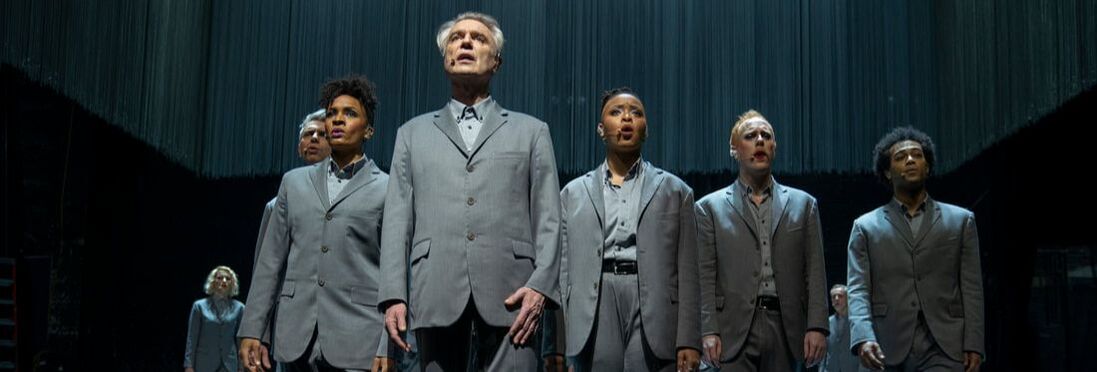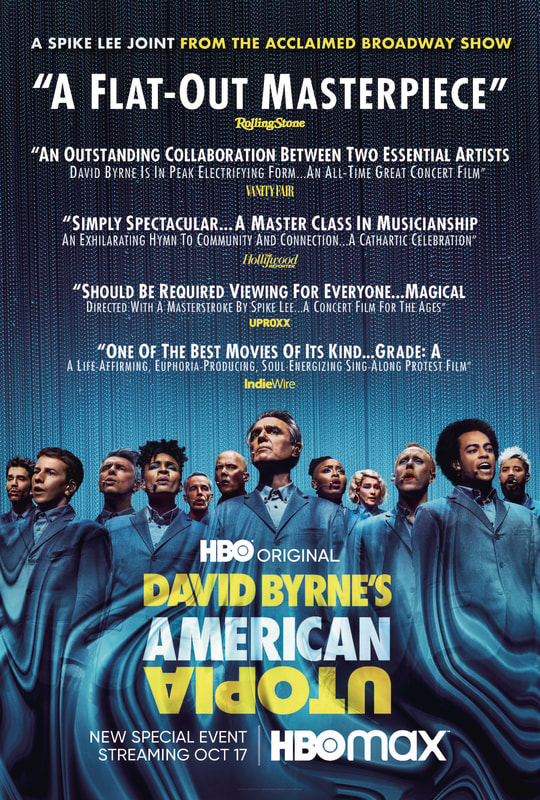|
Originally published on Elements of Madness ★★★★★ On October 9th, The Broadway League announced, to the severe disappointment of theatre professionals and fans, that Broadway will remain closed until June 2021. It’s difficult to imagine that the musicals, concerts, and plays that have been a New York City staple and a popular tourist attraction for years just aren’t taking place right now. However, even before the pandemic, filmed versions of Broadway shows brought these performances to audiences across the country who couldn’t otherwise afford to experience Broadway theatre. The success of the Hamilton pro-shot, released earlier this summer on Disney+, revealed how these filmed performances can keep the love of theatre alive, even while Broadway remains closed. While film and live theatre are entirely different mediums, and a film certainly cannot replace the experience of a live performance, a pro-shot can create an entirely new perspective on an already amazing show. Oscar and Emmy-winning director Spike Lee has done just that with David Byrne’s American Utopia, which captures a breathtaking, sold-out performance in a way that only film can. David Byrne, former lead singer and guitarist of the ‘70s/’80s New Wave band Talking Heads, continued to make art and music long after the band’s breakup in 1991 with solo albums, tours, collaborations, and an Oscar-winning score for The Last Emperor (1987). From October 2019 to February 2020, Byrne took to the Broadway stage with a band of talented musicians from around the world for a dazzling concert that included songs from Byrne’s 2018 album, American Utopia, along with a variety of Talking Heads show-stoppers. The beautiful performance is tied together by themes of human connection and social justice with a minimalist set that is filled by Annie-B Parson’s majestic choreography. In a stunning filmed version under Lee’s direction, the performance is now available for an even larger audience across the country.  Bobby Wooten III (L) and David Byrne (R) in DAVID BYRNE’S AMERICAN UTOPIA. Photo by David Lee. Bobby Wooten III (L) and David Byrne (R) in DAVID BYRNE’S AMERICAN UTOPIA. Photo by David Lee. Some die-hard live-theatre fans may turn up their noses up at the idea of filmed concerts and shows, however, as already noted, live performance and film are two different mediums with their own unique qualities. The filmed version of American Utopia is not supposed to replace the sensation of being in a packed theatre with hundreds of Talking Heads fans all jamming out to their favorite songs. Rather, it is meant to offer a new perspective on Byrne’s performance and to create a different kind of experience than that of the theatre or concert hall. With Lee’s direction and the powerful eye of cinematographer Ellen Kuras (Eternal Sunshine of the Spotless Mind), the film creates a sense of presence and intimacy. At times, with the live audience out of frame, it’s easy to forget that the band is performing in a theatre as the camera brings you onto the stage and immerses you in the blue hues of the set. Rather than the linear, two-dimensional perspective of the theatre which separates the audience from the performers with its fourth wall, the film offers multiple angles and perspectives that move around and among the band, allowing the audience to feel intimately involved on stage. As Kuras creates this intimate space with the camera, Byrne and his diverse band of performers fill up the space with celebration and joy. American Utopia translates so well to film because the band members are not only talented musicians, but successful performers who can command a screen with their movement and expressions. With a fairly minimalist production design that utilizes only three or four simple props and puts the entire band in matching gray suits, the performers don’t get to hide behind an elaborate set or rely on colorful costumes to bring their performance to life. To fill the intimate space created by the camera and translate the spectacular live show to something more cinematic, the performers are extremely expressive and fill the screen with contagious joy. Byrne’s intention for the show, as he explains in several of his monologues, was to fill the stage with what people want to look at the most: other people. Human faces. Every single performer in American Utopia looks like they are having the time of their life, and with Parson’s choreography, not a single movement is wasted. The band’s expressions, from the subtle to the bold, make the performance a perfect match for a cinematic interpretation.  David Byrne (L) and director Spike Lee (R). Photo by David Lee. David Byrne (L) and director Spike Lee (R). Photo by David Lee. Byrne has a humble and trustworthy stage presence that, alongside the dynamic expressions of the band members, carries the performance through its feature-length run time. He allows himself to be vulnerable (he kind of has to be, as he and the band perform the entire show barefoot) with emotionally open lyrics and honest monologues interspersed throughout. Although his songs are full of wisdom and ethical queries, he is never condescending or arrogant. As he discusses heavy topics, including racial injustice and the importance of voting, Byrne makes it clear that although he is a celebrity with a platform, his music and lyrics are just as much of a learning experience for him as they are for his audience. With a cover of Janelle Monáe’s “Hell You Talmbout,” a tribute to the many black lives that have been unjustly taken, Byrne indirectly addresses the question that many have been asking recently, “What place do celebrities and performers have in politics?” The central “thesis” of Byrne’s show, so to speak, is human connection, and he cannot fully cover this subject without addressing the rifts and tears in humanity caused by racism, sexism, injustice, and other politicized issues. Byrne may not be a politician, but his skills as a musician and lyricist allow him to uplift, educate, inspire, heal, and express his opinions and concerns in a much more effective and eloquent manner than two politicians bickering and interrupting each other for 90 minutes. Byrne sings about “political” issues because these are human issues, too, and his job as an artist is to represent and enhance the human experience. Whether you were a die-hard Talking Heads fan in the ‘80s or fell in love with David Byrne because the retail store you worked in used to play Psycho Killer on repeat, you’ll find Byrne’s music brought to life in a refreshing and timeless way in American Utopia. It’s a therapeutic stroke of brilliance and a true delight that you won’t want to miss. Available now on HBO Max
0 Comments
Leave a Reply. |
"Our embodied spectator, possibly perverse in her fantasies and diverse in her experience, possesses agency...finally, she must now be held accountable for it." Categories
All
|

